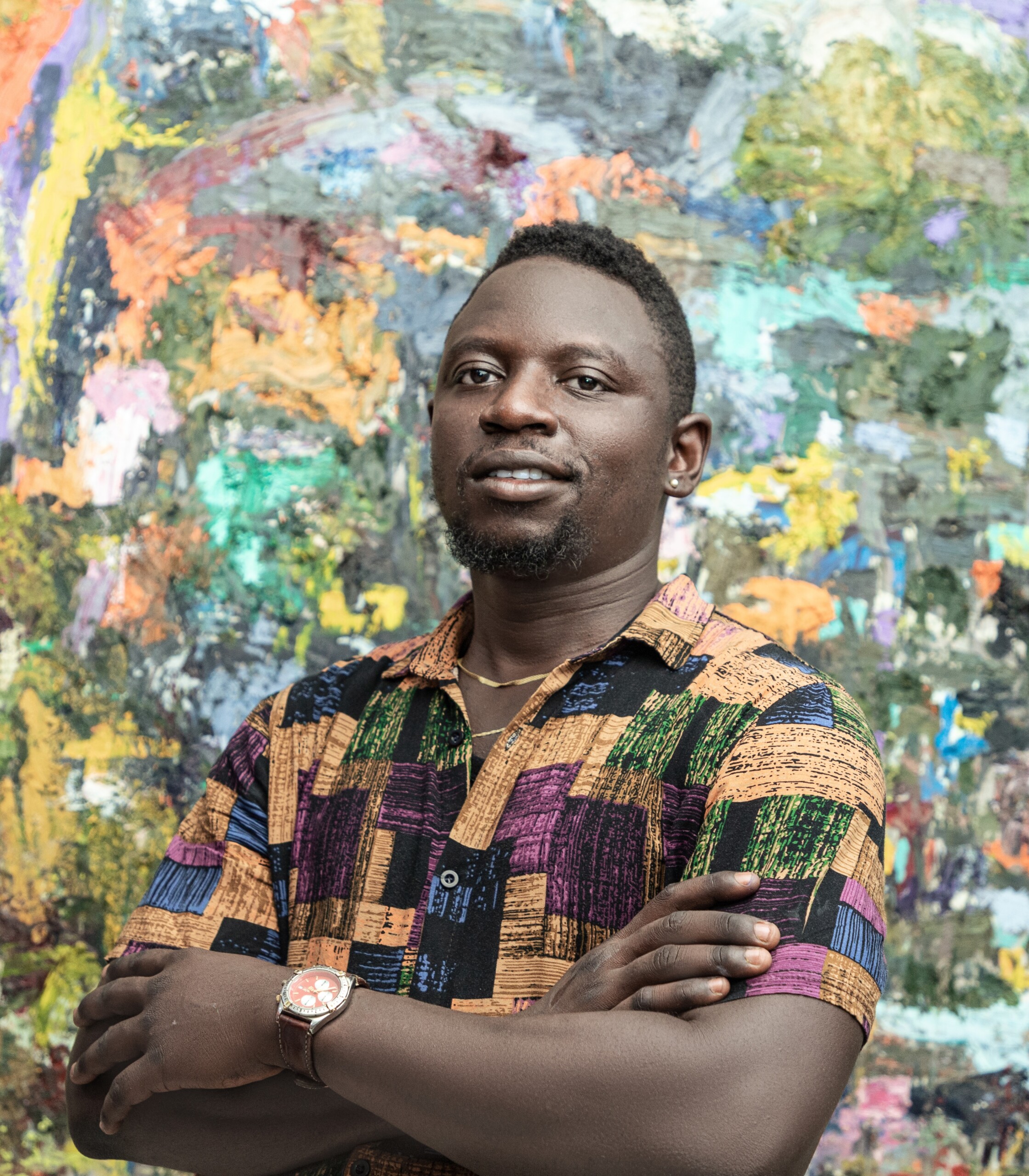WELCOME To my page
Oluwole Omofemi : (born Godwin Oluwole Omofemi on 2 June 1988)
is a Nigerian artist and curator based in Ibadan, Oyo State, Nigeria.He is mostly known for painting the last commissioned painting of Queen Elizabeth II before her death.He has held several solo and joint exhibitions both in Nigeria and abroad.
Our Vision
Who We Are
A global art entity with a cross-cultural solid business expansion in different parts of the world, largely evident in our immense involvement with Art galleries, Art fairs, top collectors, and art-conscious communities all around the globe.
Vision
To innovate, inspire, and elevate the very essence of artistic
expression worldwide, positioning as a beacon of creativity
and an artistic forbear at an expansive level, largely taking
space in the global Art scene.
Through impactful visual storytelling, we aspire to
transcend boundaries, ignite imagination, foster cultural exchange and relationships, leaving an indelible mark on the global Art landscape.
Commitments / Core values
To be diligent, dedicated and disciplined with willpower, skill and earnest determination and hardwork..
With a deep belief that impossible is nothing.


ABOUT OLUWOLE OMOFEMI
His most expensive painting till date, “The Invader”, sold for US$189,000. With other of his paintings including “Providence” and “Yesterday Has Gone” selling for US$169,900 and US$151,200 respectively.
He pointed out Tope Fatunmbi and Ebenezer Akinola as his mentors.
His signature style includes incorporating the Afro hairstyle, baldness, and tribal markings in his paintings into his contemporary figurative and portrait paintings.He does this as an intrinsic way of capturing femininity and the African identity and African heritage while running natural commentary on both its history and contemporary times. According to Okay Africa, this is his way of portraying an African “emblem of liberation, identity, and power” and is “a way of conserving African heritage and tradition”, preserving afrocentrism.He also iterated in an interview with The Sun that:
The hair is special to me just as you have rightly said because of its unique features and symbolic representation. The incident which led to my indulgence in painting hair as a subject matter, particularly afro, began in the late 1960s and early 70s when the civil rights exponents drew more attention to the love-yourself gospel which helped to project confidence, beauty and sparkle to the perception of blacks and their diasporic identity.
His works are viewed as Afrocentric. Another of his style is trying not just to paint but to capture the ‘essence’ of his subject. He ensures to make his paintings exude an aura that is human like.He also draws his artistic inspiration from his growing up days in Ibadan. Citing the serenity and free flowing way of life in the city makes sure that his inspiration is never disrupted by physical factors.He does contemporary art and abstract art as well. In his painting of the Queen of England, he painted her with black hair to capture both youth – as opposed to grey hair – as well as integrate his signature style into the painting. He also uses the pop art palette for his signature color range and mix, forming a major part of his color theory.
In 2021, he started the Oluwole Omofemi Foundation. In 2022, made donations foodstuffs and other aid to widows in the Ekotedo community in Ibadan, Oyo State; the community in which he matured. He did this remembrance of his late mother. Another facet of his philanthropy was creating a yuletide program called “Ijewuru Day”.The scheme brings youths together to motivate them and also has an eating competition segment with prizes to be won.
In a meeting with the deputy governor of Oyo State. He spoke of his intention to initiate a project for his alma mater, The Ibadan Polytechnic.
Personal life
He owns a two-room studio in Ibadan where he has apprentices. He advised upcoming artists to be wary of selling their art works without the knowledge of their lawyers or their affiliated galleries.
